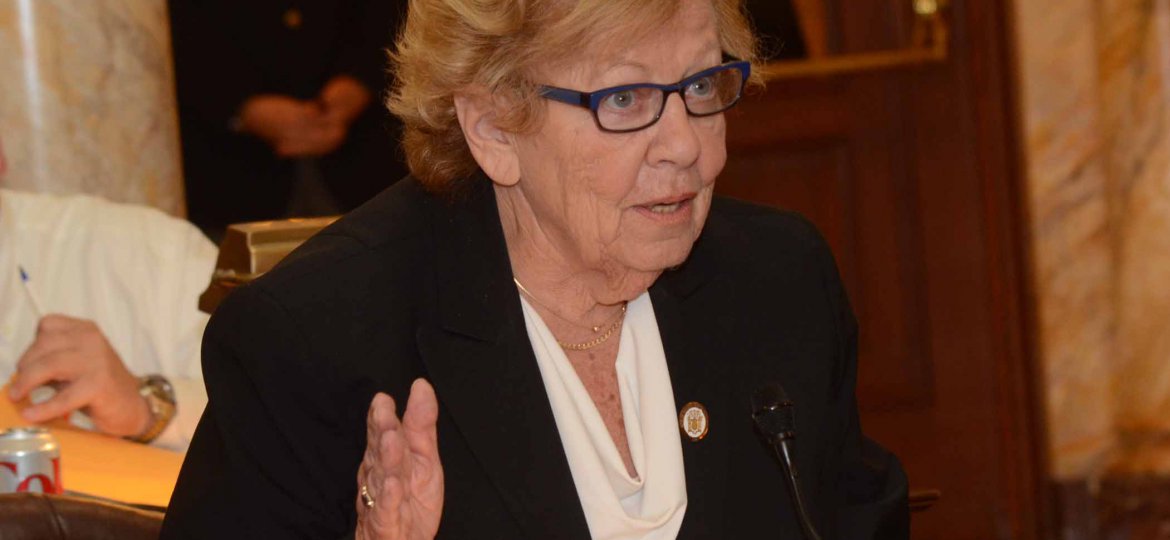
Requires Registration, Accreditation of Milk Banks Providing Milk to NJ
TRENTON – Legislation sponsored by Senate Majority Leader Loretta Weinberg and Senator Nilsa Cruz-Perez to ensure the safety of donated breast milk delivered to health care settings in New Jersey was approved today by the full Senate. The bill would establish standards for human milk banks that donate milk to a hospital in the state, and for milk banks seeking to operate in New Jersey.
“Breast milk provides important health and nutritional benefits to infants. As a result, the demand for breast milk by mothers who are unable to produce it has increased and breast milk sharing has become increasingly common,” said Senator Weinberg. “We have been working to raise awareness of the potential dangers that are associated with casual milk sharing. This bill is part of the effort to better ensure that milk provided to new mothers and, ultimately, to their babies is safe. It will establish uniform standards for human milk banks that are delivering milk to hospitals in the state, and for any banks that want to operate here.”
The bill (S-1209) would require that human milk banks seeking to operate in New Jersey, or providing donated milk to hospitals in the state, be registered with the state Department of Health and accredited by the Human Milk Bank Association of North America, and thereby, adhere to the association’s requirements and guidelines for human milk banks. As defined in the bill, “human milk bank” means an organized service that provides for the selection of a donor of human breast milk, the collection, processing, storage and marketing of donated human breast milk and the distribution of donated human breast milk to a hospital for use by low birth weight babies or new mothers with delayed lactation, or directly to a parent, with a physician’s prescription order, who is unable to nurse, or is in need of additional breast milk to feed the parent’s child.
The legislation would require the department to conduct a review every five years to determine whether the Human Milk Bank Association of North America continues to be the most appropriate accreditation authority for human milk banks and that its guidelines are proper and sufficient. Upon completion of a review, it would permit the commissioner, by regulation, to change the accreditation authority. In addition, the bill would require the department to inspect each human milk bank operating in the state at least once every five years. If the department’s inspection finds that a human milk bank is not in compliance with the requirements of the Human Milk Bank Association of North America, or a future accreditation agency, the bill would require the department to notify the accrediting agency.
DOH would be authorized to institute a civil action to enjoin the operation of a human milk bank whenever the commissioner determines that safety hazards exist or a milk bank is not complying with the provisions of the bill. Violators of the act would be subject to financial penalties.
“The positive results associated with human breast milk as the primary source of food and nutrition for infants is well established. We want to expand the accessibility of information about breastfeeding and human milk banks, but we also want to make sure the product being provided to our residents is safe,” said Senator Cruz-Perez (D-Camden). “This not only implements oversight measures for human breast milk that is being used in our hospitals but also establishes guidelines and standards for milk banks going forward.”
Senators Weinberg and Cruz-Perez are also the sponsors of legislation (S-1208) to require the Commissioner of Health to establish a public awareness campaign to advise pregnant women and new parents of the benefits of breastfeeding, and the legal protections and public and community supports for nursing mothers. The campaign would also provide facts about informal milk sharing and on the availability of nonprofit human milk banks accredited by the Human Milk Banking Association of North America or other organizations.
The Senate approved the S-1209 by a vote of 40-0. It next heads to the Assembly for consideration.

